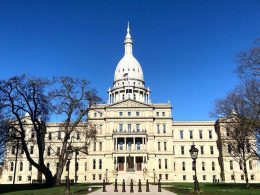Lansing, Michigan — The U.S. House of Representatives last week approved the “One Big Beautiful Bill Act,” a sweeping legislative package that combines tax breaks, spending cuts, and border security funding—key priorities aligned with President Donald Trump’s agenda. The bill now heads to the Senate for consideration.
Among the provisions included is a notable change to overtime pay taxation. The bill proposes to exempt the overtime pay premium from federal income taxes for over 80 million hourly workers, effectively providing a temporary tax break on extra hours worked.
According to the House Ways and Means Committee, the tax exemption would allow workers to fully deduct their overtime pay from taxable income. However, this deduction is set to expire after 2027 unless extended by future legislation. Workers would not see an immediate increase in take-home pay, as the benefit would be realized when filing federal taxes the following year.
The bill also includes several other tax-related measures aimed at reducing the overall tax burden on American families, such as an expanded child tax credit, elimination of federal taxes on tips, and an enhanced standard deduction. The committee estimates these provisions together could save taxpayers hundreds to thousands of dollars annually.
However, eligibility for overtime pay varies significantly across industries. While many sectors begin overtime pay after 40 hours of work per week, some professions have higher thresholds. For example, firefighters are required to work 53 hours before qualifying for overtime compensation, according to Edward Kelly, General President of the International Association of Fire Fighters.
The Tax Foundation previously warned that exempting overtime pay from income tax might incentivize more employees to seek additional hours. Conversely, it could also prompt employers to restrict overtime to manage rising labor costs.
The Congressional Budget Office estimates that the tax exemption on overtime pay could reduce federal tax revenues by approximately $124 billion, raising concerns about its fiscal impact.
While the House has passed the bill, the Senate’s response remains uncertain. The Senate has already passed legislation to eliminate federal taxes on tips, but it has not yet addressed the overtime pay tax break. Some conservative senators have criticized the overall package, calling for deeper spending cuts before offering their support.
As the bill moves through the Senate, its final form—and the fate of the overtime pay tax exemption—remain unclear. If enacted, workers who regularly put in extra hours could benefit financially, but they will have to wait to see whether the provision survives the Senate’s scrutiny.












